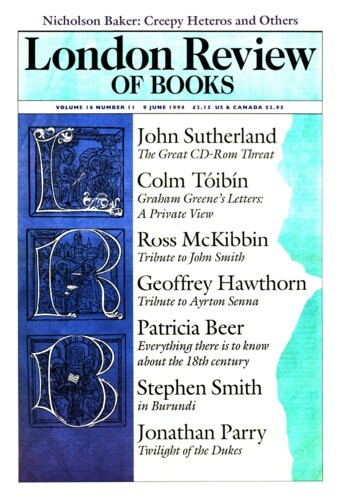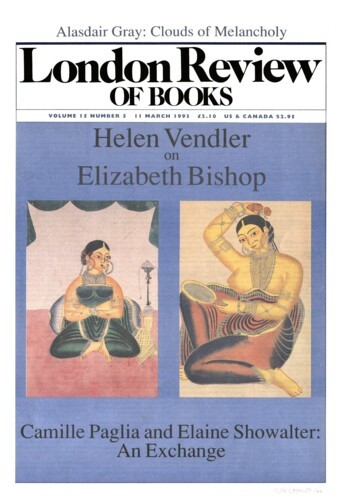In praise of manly piety
Margaret Anne Doody, 9 June 1994
Donald Davie is already known for – among many other things – his striking comments on the hymns of Watts and Wesley in A Gathered Church: The Literature of the English Dissenting Interest 1700-1930 (1978). Now he has devoted an entire book to the hymn in 18th-century England – or rather, as the title indicates, he is trying to define a specific genre or set of modes and tones that constitute ‘the 18th-century hymn’. The Christian hymn is a difficult subject, for it always belongs to a particular church party or group, is associated with congregations and public occasions, and the success of an individual hymn is partly measured by the success of its tune. Although Davie professes to approve the congregational nature of hymns, and the living transmission of them (‘They are like the Border Ballads’), he refuses to deal with music or singers, and his book shows a preference for the poetic abstracted from vulgar congregational performance – he likes John Byrom and Christopher Smart, whose greatest successes, as Davie sees it, were not pointed towards the actual singing of current congregations. Some poems which have been highly successful as sung works in congregations – of the past and sometimes of the present – seem to him scandalous or uncomfortable.’





